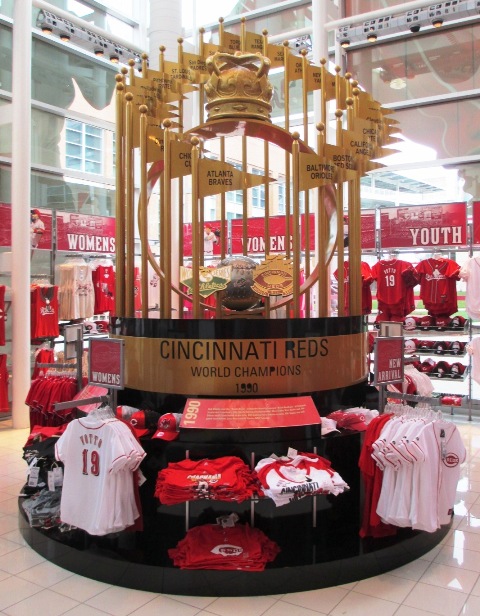
The Black Sox Scandal and Forgotten Team of 1919
Posted by Kurt Smith
The 1919 World Series and Black Sox scandal, even today, may have been baseball’s darkest hour. The revelation that eight players from one of the game’s historically best teams had thrown the Series was an earthshaking shock to fans across the country, it resulted in tough new rules that in turn resulted in the permanent expulsion of one of the game’s greatest players, and it’s been poignantly immortalized in literature and cinema.
Much of the focus of the 1919 Series today is, obviously, on the Black Sox and on Shoeless Joe Jackson, the superstar Sox outfielder for whom fans seem to have the most sympathy.
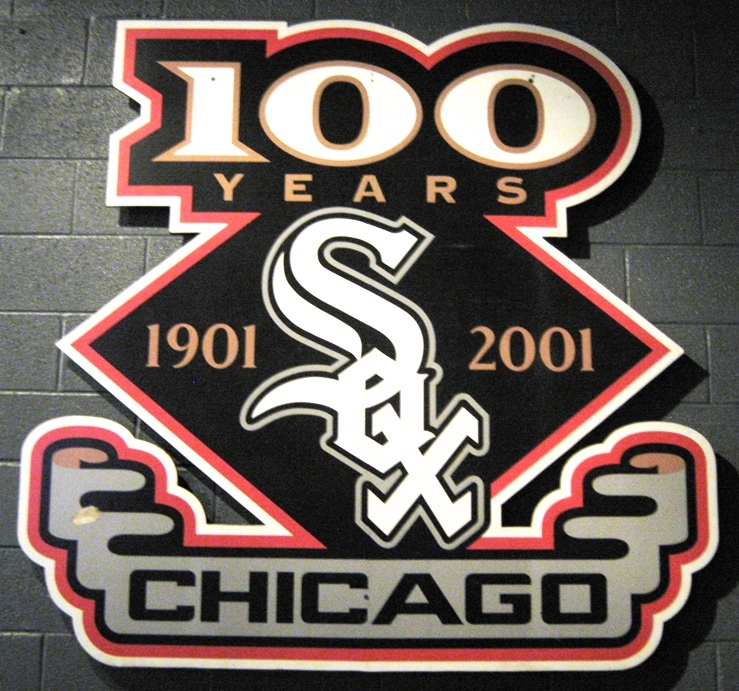
And Shoeless Joe is still one of their best known players.
The book and movie “Eight Men Out” (both are excellent…check them out if you’re a baseball fan) paint a picture of a few ballplayers furious at their penny-pinching owner, falling in with a crooked crowd and ultimately getting thrown out of baseball forever. The book “Shoeless Joe”, and subsequent “Field of Dreams” movie, fictionally chronicle the return of Shoeless Joe Jackson to a corn field in Iowa and his ultimate redemption.
What gets lost in the story is the World Series winner…a Cincinnati Reds team that no one believed stood a chance against the mighty White Sox.
At the Reds Hall of Fame, a film is shown about the history of the Cincinnati Reds. The team’s second World Series title in 1940 is said to have brought a collective sigh of relief to the city…they had finally won a World Series honestly.
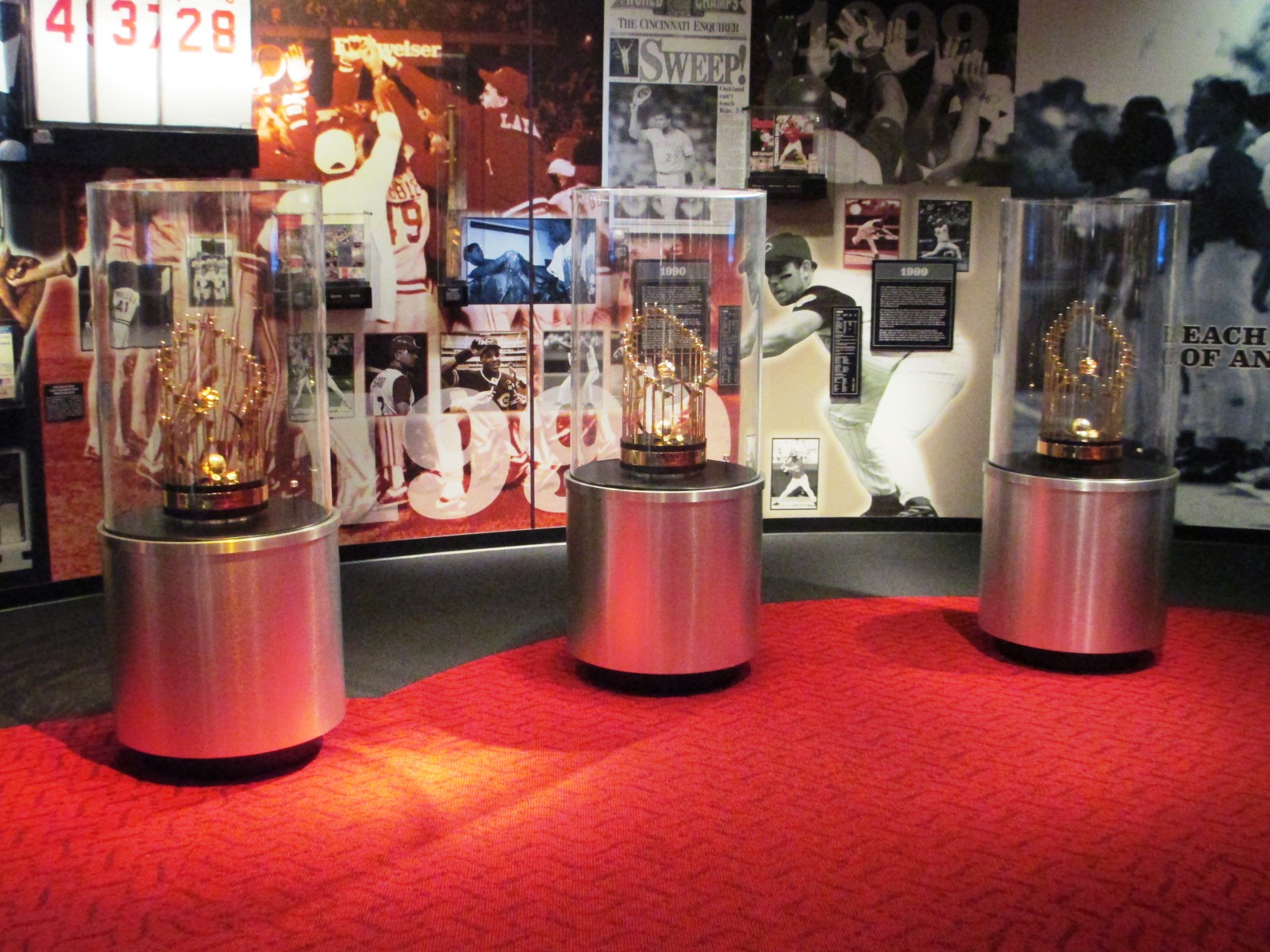
Yes, 1919 is in there.
There are some folks who believe that the Reds would have beaten the White Sox even if a few of the Sox’s best players hadn’t agreed to make Arnold Rothstein richer.
Everything is possible in baseball.
The 1990 World Series between the Reds and the loaded Oakland Athletics seemed like a mismatch, but the Reds not only won, they swept the Series convincingly. If someone questioned the legitimacy of the 1969 Series when the Miracle Mets topped the Orioles, they wouldn’t have been laughed at.
The 1919 Reds, despite not having been any great shakes before that season, were hardly pushovers. They won 96 games—the White Sox won just 88—and while they had little in offensive might beyond Edd Roush and Heinie Groh, they did possess a tremendous pitching staff. Dutch Reuther was 19-6 with a 1.82 ERA; Hod Eller was 19-9, 2.39; Ray Fisher was 14-5 and 2.17. That is some mean starting pitching.
A staff that strong, presumably, would have an edge in a short series…as we saw in 1988, 2010 and in many other triumphs of the underdog. As my father always said, good pitching always stops good hitting. (It’s kind of ironic that the first NL champion Reds team had little offense but great pitching, while the later Big Red Machine teams of the 1970s were just the opposite. Don’t tell Reds fans it’s all about pitching.)
Looking at some details of the 1919 Series, it’s certainly possible to see ways that the Reds could have triumphed in a clean contest.
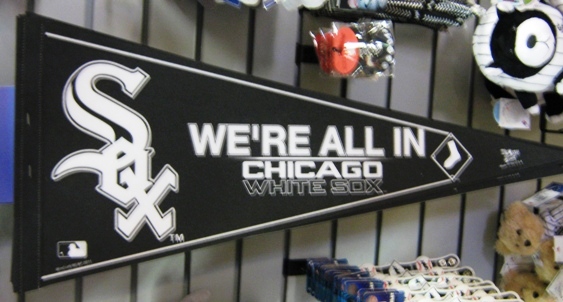
This was their slogan in 2011, I believe. Ironic in retrospect.
Shoeless Joe Jackson and Buck Weaver played too well for players supposedly trying to lose. Jackson hit .375, the highest in the Series, and threw out five baserunners, while Weaver hit .324, well above his .272 lifetime average.
It’s fair to say Weaver was telling the truth about his unwillingness to participate, and it’s not hard to believe Jackson’s similar assertion…Shoeless Joe did have a .286 average in games the White Sox lost, but that could arguably be attributed to better Reds pitching on the mound for those games, and in a short series, that is probably only 2-3 hits.
Three other players in the fix, Chick Gandil, Happy Felsch and Swede Risberg, had lifetime averages of .277, .293 and .243, respectively…good hitters if not great, but it’s not as though it’s positive they would have been the offensive difference had they been playing to win. Gandil hit .290 in 1919 and .233 in the Series; Felsch hit .275 and .192; Risberg, .256 and .080 in the Series (Risberg did walk five times, when strikeouts would have been easiest to fake).
That’s significant, I won’t argue, but for Gandil and Felsch only one or two more hits in the Series would have been normal for them…and remember they were up against some good Reds pitchers, so that’s no guarantee. The other position player in on the scandal, Fred McMullin, was a utility infielder who had only two at-bats in the Series.
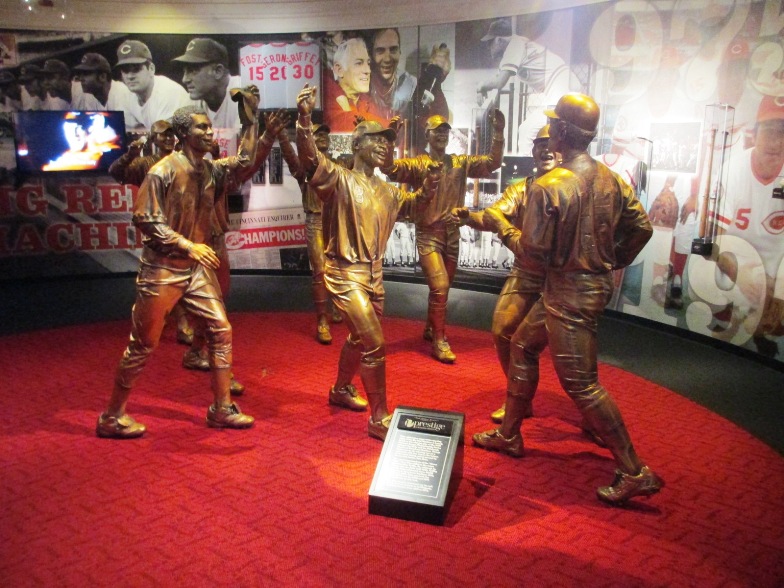
“Great win guys! They almost played their butts off!”
With the Reds pitching as strong as it was, it’s not hard to imagine that even if there were no Black Sox scandal, that the Reds pitching could still have effectively shut them down. The Sox scored just 20 runs in eight games, and that’s with two of their best hitters hardly whiffing on each at bat. It was mostly the deliberate errors during games, and meatball pitches from Eddie Cicotte and Lefty Williams, that lost the Series for the White Sox.
So what if Cicotte and Williams had performed to their considerable abilities? Cicotte’s ERA was 1.82 in the 1919 season; had he given up two runs in his starts—questionable given the Reds offense, but for the sake of argument—that might have been enough for the Reds to have won Game 1 and possibly Game 4, since the White Sox scored a total of just one run in those games.
Lefty Williams’s ERA that year was 2.64; the Sox scored just two runs in Game 2, so that could have turned out as a Reds victory as well. Williams obviously handed the win to the Reds in Game 8, so it’s hard to say whether the Reds would have won there.

It’s moot.
I’m not trying to positively assert that the Reds would have won in 1919 had the Series been clean; bookmakers were going heavily with the White Sox before the rumors of a fix, and they usually know what they’re doing, as anyone who bets on football knows.
I’m only suggesting that the 1919 Cincinnati Reds deserve some credit for a National League championship, a 96-win season and a stellar pitching staff, and that there are conceivable scenarios where in a legitimate Series, the Reds could have taken down the mighty White Sox after all. Stranger things have happened.
Unfortunately, we’ll never know.
(Note: this article contains affiliate links. If you use an affiliate link to make a purchase, Ballpark E-Guides earns a commission, at no extra cost to you. Thanks for your support!)
Want to save money on baseball tickets, parking, gear and everything else?
Check out my Fan Resources Page!!
If you go to baseball games, you’re going to spend money...on tickets, parking, food, and souvenirs, not to mention hotels and travel expenses if you’re going on a baseball road trip.
I’m here to help…click here to see my Fan Resources page, where I share some of my favorite recommendations for buying tickets, booking baseball parking and saving on travel expenses!


